The article was written by Emily Mosack- Security Analyst with FoxPointe Solutions at The Bonadio Group
As organizations grow, utilizing third parties or outside sources becomes increasingly common. Vendor Risk Management (VRM) is vital to keeping your organization safe from the rising risk of security breaches.
VRM is the practice of ensuring that the use of service providers (third-party vendors) does not create a negative impact on business performance. Ideally, the risk management process will evaluate, monitor, and manage the organization’s risk exposure associated with a new partnership with a third-party vendor.
Cybersecurity and Data Protection
Utilizing third-party vendors can open the organization up to additional risks if the vendors have access to your organization’s sensitive information, including customer data. Proper security guidelines must be in place and followed to safeguard your and your customers’ data correctly to decrease the chance of a breach occurring. According to a study conducted in 2022 by Statista, there were more than 1,800 cases of security breaches across the United States affecting over 422 million people. It is important to keep your organization safe to prevent a loss of security that can be detrimental and have lasting effects.
Scalability and Growth
As an organization grows and scales its business, VRM provides a structured way to assess and manage risk associated with this growth, ensuring that the organization’s risk remains proportional even with its size and complexity. Leveraging third-party vendors can be a strategic way to grow and expand your organization, but it is crucial to understand the inherent risks that are associated with doing so. VRM is essential to protecting your organization and should be considered before engaging new vendors, especially if they will have access to sensitive data.
Compliance
Remaining up to date with the rules and regulations related to data protection is critical to keep your organization safe from exposure. Depending on how and where your organization does business, there are a multitude of compliance guidelines that are required to be and/or should be followed regarding cybersecurity (Privacy Act of 1974, the General Data Protection Regulation (GDPR), the National Institute of Standards and Technology (NIST), etc.). Your organization should establish a monitoring process to ensure that you remain current with compliance requirements.
Reputation
Adhering to compliance standards reduces the risk of reputational damages and loss of credibility for your organization. Vendors that have a poor security posture or operate unethically can not only increase the likelihood of exposure, but also lead to negative consequences for the organizations affiliated with them, as those organizations may lose their integrity and reputation in the industry. VRM can help mitigate the risks that can have negative long-lasting effects for your organization.
By taking charge and proactively addressing these risks, organizations can protect their data, operations, reputation, and growth, ensuring the overall success and strength of the business.


